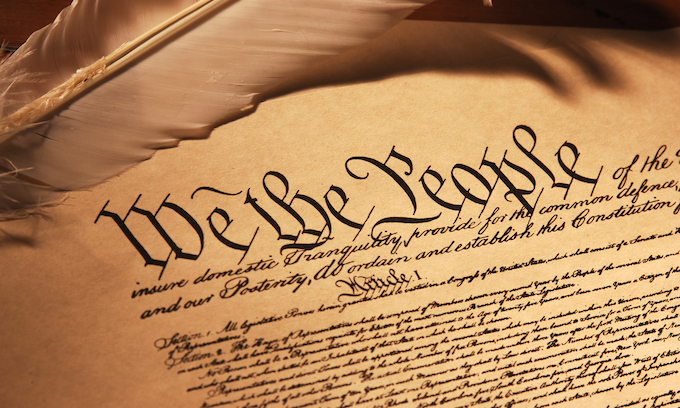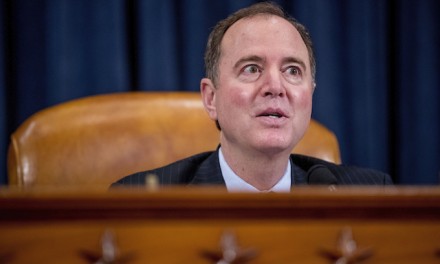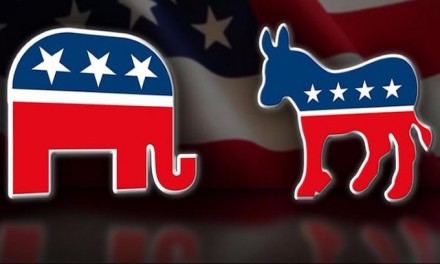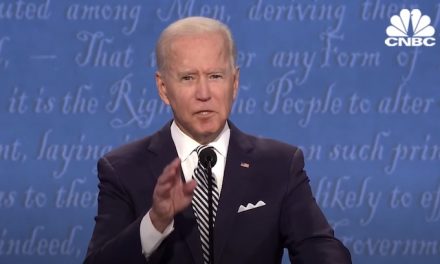Americans are an independent lot by nature, and they instinctively resist unbridled expansion of government power — except in times of crisis. The attacks of Sept. 11, 2001, gave birth to the Department of Homeland Security, which citizens rightly welcomed to the fight against terrorism. Now a different sort of enemy threatens the nation in the form of the coronavirus, which is filling up morgues with its victims. Strategies for containing the pandemic are going, well, viral, bringing the colossal power of U.S. brains and brawn to bear against the peril. With them, though, come edicts that suddenly weaken constitutional liberties in a manner that would never be acceptable in normal times. Americans must demand their liberty back when the danger subsides.
In recent days, communiques have proliferated the public domain reading like passages out of “Nineteen Eighty-Four,” George Orwell’s dystopian novel of totalitarianism: “Stay at home. Only go out for essentials. You have to readjust your thinking. Be smart. Not only will our police be deployed to shut them down if you are not abiding by these orders we will be forced to shut down the parks and lakefront. The situation is deadly serious and we need you to take it deadly seriously.”
In fact, these are warning words from Chicago Mayor Lori Lightfoot. Some city residents, she judges, have treated her coronavirus lockdown mandate to stay home a little too cavalierly, gathering in parks to ride bikes, run and stroll with baby carriages. Normal springtime activities are fine in ordinary times but with dozens of deaths and thousands of infections statewide, this is no ordinary spring.
Metropolitan regions share the best of modern life, but also bear the worst. The coronavirus has introduced the 21st century to an unexpected level of dread. Around the nation, photos of city streets deserted at midday have the look of pre-dawn Sunday, proof that admonitions like Ms. Lightfoot’s, intended to slow the spread of contagion, are indeed being reluctantly heeded by most residents. A text from one Chicago 30-something conveys what many are likely thinking but few are saying: “They’re not letting us go outside. Tyranny.”
Tyranny is a strong word. It may better apply to even more-restrictive measures taken in such places as China, South Korea and Singapore. In those nations, governments have employed phone location data to track the location of known coronavirus carriers in order to ensure they are honoring self-quarantine rules. To a degree, it makes sense. But video broadcast around the world of Chinese state police chasing citizens through the streets until they are finally captured and dragged off, still squirming, raise gut-wrenching questions about how far authorities should go in truncating liberty in the name of public health.
Less militaristic but similarly invasive techniques are underway here. State and local governments in conjunction with the federal Centers for Disease Control and Prevention are harvesting location and movement data of cellphone users provided by mobile advertisers, reports The Wall Street Journal. Authorities hope to track the anonymized movements of populations in as many as 500 cities in order detect clusters of individuals ignoring stay-at-home rules and halt virus hot spots before they erupt.
To be sure, perilous times call for extraordinary measures. U.S. cities are not rounding up footloose pedestrians, but insidious abuse could be in the offing if authorities go beyond simply eyeballing cellphone location data and deploy it in order to lock down city sectors or round up curfew refuseniks.
Ominously, the Department of Health and Human Services last week waived Health Insurance Portability and Accountability Act regulations prohibiting the sharing of patient medical data in order to facilitate COVID-19 treatment. Sen. Edward Markey, Massachusetts Democrat, has raised concern that relaxed rules could lead to widespread privacy breaches. In a March 18 letter to White House Chief Technology Officer Michael Kratsios, Mr. Markey wrote: “Although I agree that we must use technological innovations and collaboration with the private sector to combat the coronavirus, we cannot embrace action that represents a wholesale privacy invasion, particularly when it involves highly sensitive and personal location information.”
The coronavirus will eventually fade, leaving behind disturbing memories and fresh graves. It will fall to the survivors of the 2020 pandemic to ensure that strictures instituted for an terrifying era also vanish so that future generations can say with conviction that America is still “the land of the free.”
© Copyright (c) 2020 News World Communications, Inc.
—-
This content is published through a licensing agreement with Acquire Media using its NewsEdge technology.



















Recent Comments